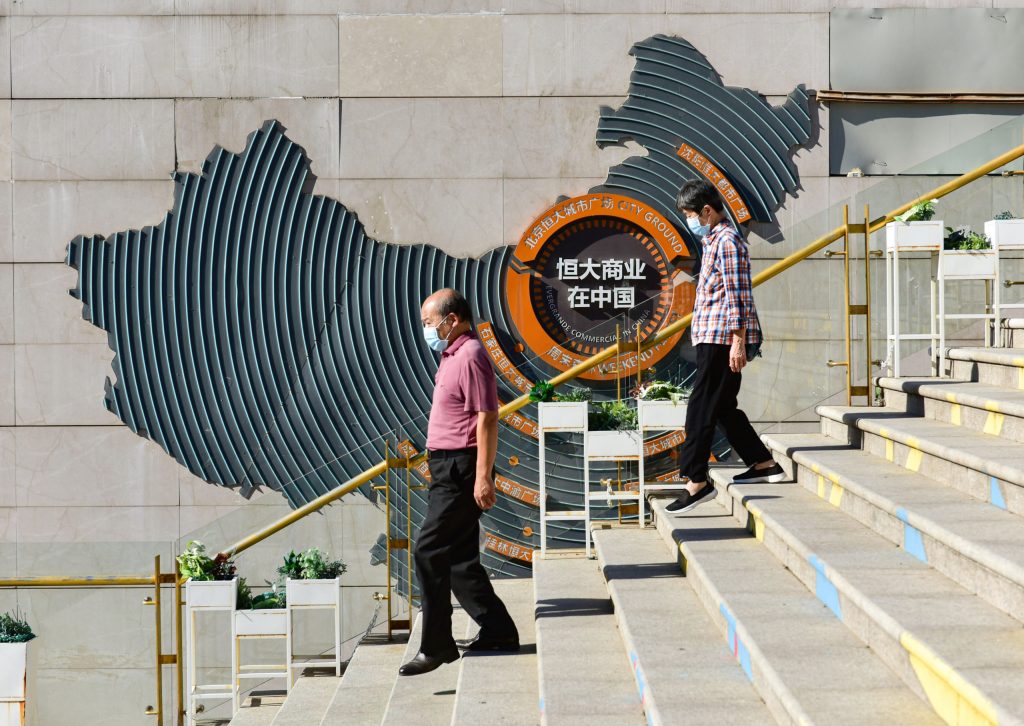
Tread carefully in the China trade, says one top exchange-traded fund provider.
Asia markets bounced back Thursday after a week of selling spurred by debt issues at Evergrande, one of China’s largest property developers.
Evergrande’s problems shouldn’t render China a no-touch zone for investors, said DWS Group’s Arne Noack, one of the brains behind the Xtrackers Harvest CSI 300 China A-Shares ETF (ASHR).
“China is very much investable. However, we would definitely caution that China should not be looked at as a market like the U.S. or, let’s say, most of Western Europe,” the firm’s head of systematic investment solutions for the Americas told CNBC’s “ETF Edge” on Monday.
“China obviously as an economy is subject to much more stringent and severe regulation. The regulatory risk on individual sectors and individual companies is significantly heightened,” Noack said.
As such, investors must take care to understand how their China-based ETFs are positioned within its market, he said.
China’s stock market has three main components: the mainland, Hong Kong and U.S.-listed Chinese companies.
ASHR, Noack’s ETF, holds the 300 largest Chinese mainland stocks, leaning heavily toward financials, information technology and consumer staples, and away from energy, communications and real estate.
But exposure varies across the ETF space:
- The iShares China Large-Cap ETF (FXI) is made up of 50 Hong Kong-listed names
- IShares’ MSCI China ETF (MCHI) offers a broader mix of mainland, Hong Kong and U.S.-listed stocks
- KraneShares’ popular CSI China Internet ETF (KWEB) holds both Hong Kong and U.S.-listed names
- The SPDR S&P China ETF (GXC) buys ex-mainland China stocks
Furthermore, broader international funds all tend to have different allocations to the Chinese market:
- IShares’ MSCI Emerging Markets ETF (EEM) has a 33% China weighting
- Vanguard’s International Growth Fund allocates 14%
- Vanguard’s Total International Fund allocates 10%
- iShares’ MSCI ACWI ETF (ACWI) allocates 4%
“China is most definitely too large and too important for the world economy to be ignored,” Noack said. “However, the current circumstances warrant and very much show us that it’s a good time to have another look at what drives China and what drives the different China allocations that may … already be in existence through various other vehicles.”
These discrepancies highlight why active management is so useful when it comes to China, Adviser Investment Management Chairman Daniel Wiener said in the same interview, adding he was “glad to have exposure” to its market.
“An active manager can pick and choose and build a portfolio based on their research as opposed to whoever it is that constructs these various indexes. That is why we’ve been advising our clients forever to use active funds,” said Wiener, who is also editor of The Independent Adviser for Vanguard Investors, a monthly newsletter.
“If you want to make a weighted bet on one country, whether it’s China, France, Italy — Turkey was very popular last year — you can do it with ETFs, but you have to be very, very cautious,” he said. “It’s really a trading vehicle. It is not an investment.”




























